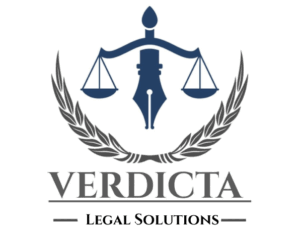
Business law fundamentally shapes how we form, operate, and close our businesses in today’s complex marketplace. When launching a startup, we often focus on product development and marketing while overlooking essential legal considerations that could protect or potentially sink our ventures.
Understanding business law isn’t just a regulatory formality—it’s a strategic necessity. Business law essentially falls into two distinctive areas: the regulation of commercial entities through company, partnership, and bankruptcy laws, and the regulation of commercial transactions through contract law. Additionally, the concept of legal personality and the theory of limited liability serve as the foundation of company law.
In this guide, we’ll explore everything from choosing the right business structure to navigating contracts and protecting your intellectual property. We’ll also examine what to do when facing financial challenges, because the closing of a business is a significant aspect of business law. Whether you’re considering a partnership, which is one of the most common business types in the USA and Canada, or another business entity, this article will provide the legal fundamentals every startup needs.
What is business law?
Business law encompasses the rules, regulations, and legal principles that govern all commercial activities and transactions. It falls into two primary categories: the regulation of commercial entities through company, partnership, agency, and bankruptcy laws; and the regulation of commercial transactions through contract law and related fields.
In civil-law countries, company law consists mainly of statute law, whereas in common-law countries it’s a mixture of common law, equity principles, and statutory regulations. At its core, business law addresses everything from business formation and operation to dissolution, covering areas such as:
- Commercial contracts and agreements
- Corporate governance and compliance
- Employment and labor relations
- Intellectual property protection
- Consumer protection standards
- Environmental regulations
- Tax obligations and financial regulations
Furthermore, business law establishes the fundamental legal concepts that underpin commercial activities, including legal personality and limited liability theory—both critical for protecting business owners from personal financial exposure.
Why startups need to understand legal basics
For entrepreneurs launching new ventures, legal knowledge isn’t a luxury—it’s a necessity. First, understanding business law helps startups maintain compliance, thereby avoiding penalties, lawsuits, and regulatory issues that could derail growth before it begins.
Moreover, proper legal foundations protect not just the business but all stakeholders involved. From securing intellectual property to establishing clear employment practices, legal compliance builds trust with customers, investors, and employees alike.
Beyond protection, legal knowledge enables startups to make informed strategic decisions. For instance, choosing the right business structure affects everything from taxation to personal liability protection. Similarly, understanding contract law helps entrepreneurs negotiate better terms and avoid agreements that could hamper future flexibility.
In fact, legal compliance opens doors to growth opportunities since many investors require evidence of proper legal standing before funding a startup. As one legal expert noted, “Having a qualified business lawyer on retainer is one of the best ways to protect your small business from legal liability”.
Common legal risks for new businesses
New ventures face numerous legal pitfalls that can prove costly or even fatal to business success. Among the most significant risks are those related to business structure selection. The wrong choice between sole proprietorship, LLC, corporation, or partnership can result in unfavorable tax consequences and potentially unlimited personal liability.
Employment law violations represent another major risk area. These commonly lead to costly litigation, particularly involving wrongful termination and discrimination claims. Without proper policies and documentation in place, startups become vulnerable to employee disputes that drain resources.
Contract risks similarly pose significant threats. Operating on “handshake” deals without written agreements often leads to misunderstandings and legal battles. Conversely, poorly drafted contracts can sometimes be worse than having no contract at all.
Regulatory compliance failures present additional dangers. Depending on your industry, various government agencies enforce complex rules that, if violated, can result in civil or criminal penalties. Many entrepreneurs discover these obligations only after facing enforcement actions.
Other common startup legal risks include:
- Intellectual property infringement or inadequate protection
- Securities law violations when raising capital
- Insurance coverage gaps
- Data privacy regulation non-compliance
- Partner disputes without proper succession planning
Understanding these risks isn’t about becoming overly cautious—rather, it’s about building a legally sound foundation that allows your business to thrive without unexpected legal interruptions.
Sole proprietorship vs. LLC vs. corporation
Sole proprietorships offer the simplest path to business ownership. As a sole proprietor, I maintain complete autonomy and experience streamlined setup with minimal paperwork. However, this structure provides zero separation between personal and business assets—creating unlimited personal liability for all business debts and obligations.
Limited Liability Companies (LLCs) provide a popular middle ground. They blend liability protection with operational flexibility, allowing me to shield personal assets from business liabilities. Unlike sole proprietorships, LLCs create a protective wall between personal and business finances. Furthermore, LLCs offer tax flexibility, functioning as either pass-through entities or corporations based on my preference.
Corporations provide the strongest liability protection yet demand more extensive compliance requirements. C Corporations face “double taxation”—first at the corporate level and again when dividends reach shareholders. Conversely, S Corporations avoid this through pass-through taxation while maintaining liability protection, though they must follow stricter ownership rules.
Key elements of a valid contract
A legally binding contract must contain six essential elements to be enforceable. First, there must be an offer that clearly communicates the terms of the agreement. Second, acceptance must occur when the other party agrees to these terms without modifications. Third, both parties must demonstrate awareness (often called “meeting of the minds”) that they’re entering into a binding agreement.
Fourth, consideration must exist—something of value exchanged between parties, whether money, services, or property. Fifth, all signatories must have legal capacity, meaning they understand the obligations and are not minors, intoxicated, or mentally impaired. Finally, the contract must have legality, addressing something lawful under applicable jurisdiction.
Without any one of these elements, a contract may be unenforceable or void entirely.
Common startup contracts to know
As your business grows, you’ll need several critical agreements:
- Founders’ Agreement – Defines roles, responsibilities, equity ownership, and decision-making processes among co-founders
- Employment Agreements – Outlines job roles, compensation, benefits, and termination terms
- Non-Disclosure Agreements (NDAs) – Protects confidential information when discussing ideas with potential investors, employees, or partners
- Service Agreements – Establishes performance standards, scope of services, response times, and remedies if standards aren’t met
- Client Agreements – Details deliverables, deadlines, payment terms, and cancelation policies
- IP Assignment Agreements – Ensures intellectual property created by employees or contractors belongs to your company
Each agreement serves as a strategic tool for protection, governance, and growth rather than mere legal formality.
Avoiding breach of contract issues
A breach occurs when one party fails to fulfill obligations without valid legal excuse. Subsequently, this can damage business relationships and result in significant financial costs.
To prevent breaches, start by drafting robust contracts with clear terms and realistic expectations. Indeed, ambiguity often leads to misunderstandings and disputes. In order to maintain compliance, ensure each department understands their specific responsibilities under agreements.
Furthermore, implement a reliable system to track important contract data points and deadlines. Setting reminders for payment dates, delivery milestones, and other commitments helps prevent accidental breaches. For complex agreements, consider contract management software that provides visibility into obligations throughout the contract lifecycle.
Ultimately, if a dispute arises, attempt resolution through mutual discussion before pursuing legal action—this approach is typically more time-efficient and cost-effective than litigation.
Protecting Your Business Legally
Safeguarding your startup’s assets requires proactive legal protection in multiple areas. From intellectual property to employee relations, a comprehensive legal shield prevents costly disputes and builds customer trust.
Registering trademarks and copyrights
Intellectual property serves as the foundation of a startup’s competitive advantage. Registering trademarks protects your brand name, logo, and unique identifiers that distinguish your products or services from competitors. The registration process involves filing with the Trademark Registry, conducting a search to ensure uniqueness.
Copyright protection automatically covers original creative works, including software code, written content, and artistic elements. Even so, registering your copyright provides stronger legal standing in infringement cases. For technology startups, consider combining trademark, copyright, and potentially patent protection for comprehensive coverage.
Conclusion
Business law fundamentals serve as the cornerstone for any successful startup. Throughout this guide, we’ve explored essential legal aspects that every entrepreneur should understand before launching their venture. Choosing the right business structure ranks among the most critical decisions you’ll make, directly affecting everything from taxation to personal liability protection. LLCs offer an excellent balance for most startups, though your specific circumstances might warrant a different choice.
Contracts, likewise, form the backbone of your business relationships. A thorough understanding of contract elements helps prevent costly disputes while protecting your interests. Additionally, safeguarding your intellectual property through trademark and copyright registration provides a competitive advantage that cannot be overstated.
Financial challenges will undoubtedly arise during your entrepreneurial journey. However, knowing the available options—from negotiating with creditors to understanding bankruptcy provisions—can mean the difference between business recovery and permanent closure.
Above all, proactive legal planning prevents most common startup pitfalls. Rather than viewing legal compliance as a bureaucratic burden, consider it a strategic foundation for sustainable growth. Many successful entrepreneurs attribute their longevity to solid legal groundwork established early.

